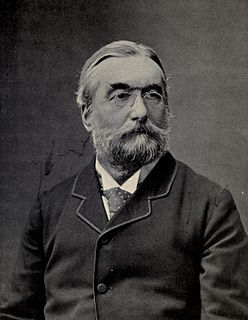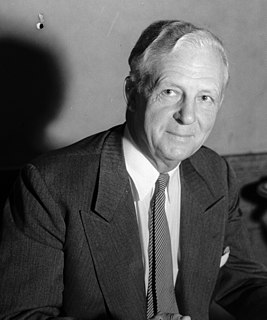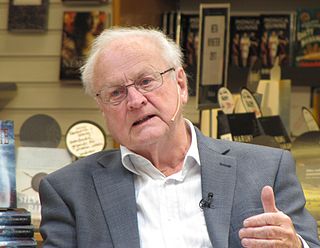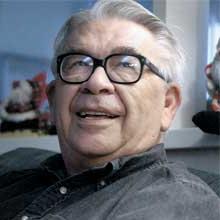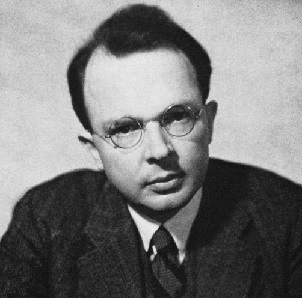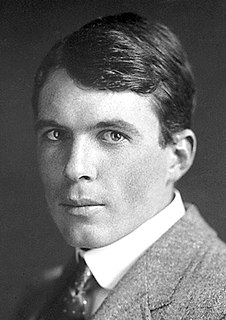Top 1200 Scientific Progress Quotes & Sayings - Page 2
Explore popular Scientific Progress quotes.
Last updated on April 16, 2025.
There is no single test or formula for producing moral progress anymore than there is for generating scientific truths. It is a process involving theoreticians, fact-gatherers, protestors, martyrs for the cause, authors of first- person narratives who change the way we see and evaluate the distribution of harms and benefits.
The technological overflow from scientific research has brought scientific research this bad name about carrying an irresponsibility and an alienation from God - because scientific research has led to things like the atom bomb, it's led to problems with depletion of ozone in the Earth's atmosphere, or at least it's revealed those problems.
The responsibility for the creation of new scientific knowledge - and for most of its application - rests on that small body of men and women who understand the fundamental laws of nature and are skilled in the techniques of scientific research. We shall have rapid or slow advance on any scientific frontier depending on the number of highly qualified and trained scientists exploring it.
Geography was not furthered by the achievement, scientific progress was scarcely hastened, and nothing new was discovered. Yet the names of Hillary and Tenzing went instantly into all languages as the names of heroes, partly because they really were men of heroic mold but chiefly because they represented so compellingly the spirit of their time.
Concepts which have proved useful for ordering things easily assume so great an authority over us, that we forget their terrestrial origin and accept them as unalterable facts. They then become labeled as 'conceptual necessities,' etc. The road of scientific progress is frequently blocked for long periods by such errors.
It is this claim to a monopoly of meaning, rather than any special scientific doctrine, that makes science and religion look like competitors today. Scientism emerged not as the conclusion of scientific argument but as a chosen element in a worldview - a vision that attracted people by its contrast with what went before - which is, of course, how people very often do make such decisions, even ones that they afterwards call scientific.
Groups do not have experiences except insofar as all their members do. And there are no experiences... that all the members of a scientific community must share in the course of a [scientific] revolution. Revolutions should be described not in terms of group experience but in terms of the varied experiences of individual group members. Indeed, that variety itself turns out to play an essential role in the evolution of scientific knowledge.
It is ironic that the scientific facts throw Darwin out, but leave William Paley, a figure of fun to the scientific world for more than a century, still in the tournament with a chance of being the ultimate winner... Indeed, such a theory is so obvious that one wonders why it is not widely accepted as being self-evident. The reasons are psychological rather than scientific.
I wouldn't say that religion has promoted the social progress of mankind. I say that it has been a detriment to the progress of civilization, and I would also say this: that the emancipation of the mind from religious superstition is as essential to the progress of civilization as is emancipation from physical slavery.
As time passed I became an avid reader of popular scientific books, wanting to know as much as I could about the world in which I lived. Gradually I began to see a pattern of nonsense in much scientific writing. Scientific explanations given regarding the origins or functioning of various phenomena simply didn't make sense.
The progress of Science consists in observing interconnections and in showing with a patient ingenuity that the events of this ever-shifting world are but examples of a few general relations, called laws. To see what is general in what is particular, and what is permanent in what is transitory, is the aim of scientific thought.
What happens then is like what happens when we separate a jigsaw puzzle into its fuve hundred pieces: The over-all picture disappears. This is the state of modern medicine: It has lost the sense of the unity of man. Such is the price it has paid for its scientific progress. It has sacrificed art to science.
The hope of a secure and livable world lies with disciplined nonconformists, who are dedicated to justice, peace and brotherhood. The trailblazers in human, academic, scientific and religious freedom have always been nonconformists. In any cause that concerns the progress of mankind, put your faith in the nonconformist!
The basic question that the 'new science' raises for our balance sheet is the issue of what scientific questions have not been asked for 500 years, which scientific risks have not been pursued. It raises the question of who has decided what scientific risks were worth taking, and what have been the consequences in terms of the power structures of the world.
Unfortunately, there is something of a flaw in this idealized picture of the way the scientific community discovers truth. And the flaw is that most scientific work never gets noticed. Study after study has shown that most scientific papers are read by almost no one, while a small number of papers are read by many people.
Futurologists have been multiplying like flies since the day Herman Kahn made Cassandra's profession "scientific," yet somehow not one of them has come out with the clear statement that we have wholly abandoned ourselves to the mercy of technological progress. The roles are now reversed: humanity becomes, for technology, a means, an instrument for achieving a goal unknown and unknowable.
There’s this thing called progress. But it doesn’t progress. It doesn’t go anywhere. Because as progress progresses the world can slip away. It’s progress if you can stop the world slipping away. My humble model for progress I the reclamation of land. Which is repeatedly, never-ending retrieving what it lost. A dogged and vigilant business. A dull yet valuable business. A hard, inglorious business. But you shouldn’t go mistaking the reclamation of land for the building of empires.
Nothing gives us greater pride than the importance of India's scientific and engineering colleges, or the army of Indian scientists at organizations such as Microsoft and NASA. Our temples are not the god-encrusted shrines of Varanasi, but Western scientific institutions like Caltech and MIT, and magazines like 'Nature' and 'Scientific American.
The present rate of progress [in X-ray crystallography] is determined, not so much by the lack of problems to investigate or the limited power of X-ray analysis, as by the restricted number of investigators who have had a training in the technique of the new science, and by the time it naturally takes for its scientific and technical importance to become widely appreciated.














